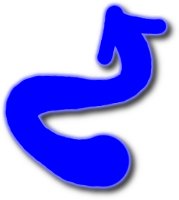Avoiding the passive voice in Mandarin
[ ](/china/putonghua/avoiding-passive-voice/attachment/dodge-arrow/” rel="attachment wp-att-4612)You may know that the passive voice in Mandarin is not used very often. This is because the Mandarin passive voice is reserved for negative events, and is not used freely in the way that the English passive voice is.
](/china/putonghua/avoiding-passive-voice/attachment/dodge-arrow/” rel="attachment wp-att-4612)You may know that the passive voice in Mandarin is not used very often. This is because the Mandarin passive voice is reserved for negative events, and is not used freely in the way that the English passive voice is.
This can make translation of Mandarin into English a little bit tricky. How do you get round passive constructions in English when converting them to Mandarin Chinese?
There are actually a few different ways to do this, depending on the situation. All of them involve converting the passive sentence into an active one, so the name of the game is finding a suitable agent (the person who performs the action of the verb).
Add a generic agent
One feature of the passive voice is that it doesn’t need to specify an agent. When translating into Mandarin, you can easily rearrange passive sentences into active ones by adding a generic agent. All you need to do is add “someone” - 有人 . This can then function as the subject of an active sentence.
Some examples:
有人听到了他洗澡的时候唱歌。 Yǒurén tīngdàole tā xǐzǎo de shíhou chànggē. He was heard singing in the shower.
有人看到了她在饭馆跟她的爱人在一起。 Yǒurén kàn dàole tā zài fànguǎn gēn tā de àirén zài yīqǐ. She was seen at a restaurant with her lover.
有人认为他们是历史上最伟大的乐队。 Yǒurén rènwéi tāmen shì lìshǐ shàng zuì wěidà de yuèduì. They are considered the greatest rock band in history.
以前有人以为火星上有智能生物。 Yǐqián yǒurén yǐwéi huǒxīng shàng yǒu zhìnéng shēngwù. It was once thought that there was intelligent life on Mars.
Add a specific agent
If you could add “by (someone)” to the end of a passive sentence, you can use this to convert it to an active one. You’ve just got to identify the person who performed the action in the sentence, and use them as the new subject. This isn’t always possible, but can make for an elegant translation.
You just have to be careful that the subject you’re adding really was intended in the original sentence.
Some examples:
医生治疗了他们低体温症。 Yīshēng zhìliáole tāmen dī tǐwēn zhèng. They were treated for hypothermia.
许多国家的人讲英文。 Xǔduō guójiā de rén jiǎng yīngwén. English is spoken in many countries.
他们给我们展示了他们家人的所有照片。 Tāmen gěi wǒmen zhǎnshìle tāmen jiārén de suǒyǒu zhàopiàn. We were shown all of their family photos.
Pick an agent out of the sentence
This method is actually just a variation of “add a specific subject”. If the sentence hints at an obvious subject, use it! This often avoids the risk of adding in extra information that the original sentence didn’t intend.
Some examples:
他们因低体温症而接受治疗。 Tāmen yīn dī tǐwēn zhèng ér jiēshòu zhìliáo. They were treated for hypothermia.
俄罗斯去年发射了一个卫星。 Èluósī qùnián fāshèle yīgè wèixīng. A satellite was launched in Russia last year.
Facebook的用户每一秒发一万以上个信息。 Facebook de yònghù měi yī miǎo fā yī wàn yǐshàng gè xìnxī. Over ten thousand messages are sent every second on Facebook.
基督徒认为耶稣是上帝的儿子。 Jīdū tú rènwéi yēsū shì shàngdì de érzi. In Christianity, Jesus is believed to be the son of God.
很多貧窮的学生得到会计科。 Hěnduō pínqióng de xuéshēng dédào kuàijì kē. Many poor students are given bursaries.
Get an agent from an independent clause
More grammar terms! An independent clause is a mini-sentence that sits inside a larger one. They’re often introduced with “that” in English. In these cases you can just grab the subject from this mini-sentence and make it the subject for the whole thing. This is usually a good bet when the English sentence has the dummy subject “it”.
An example:
据说战争快要结束了。 Jùshuō zhànzhēng kuàiyào jiéshùle. It is said that the war will end soon.
Here, “the war will end soon” is the independent clause. It can function on its own as a sentence. When translating into Mandarin, you can take the agent “the war” out of this independent clause and make it the agent for the whole sentence.
More examples:
据传总统下个月要辞职了。 Jù chuán zǒngtǒng xià gè yuè yào cízhíle. It is rumoured that the prime-minister will resign next month.
据研究发现抽烟有害健康。 Jù yánjiū fāxiàn chōu yān yǒuhài jiànkāng. It has been found that smoking is bad for your health.
Which one of these methods to use will of course depend on the situation, but at least one of them should provide a good solution. And of course, if the passive sentence in English is about a negative action, you can use the actual Mandarin passive construction.
Questions? Suggestions? Please share in the comments below!
Useful links:
- [Modern Mandarin Chinese Grammar - Amazon](http://www.amazon.co.uk/gp/product/0415700108/ref=as_li_ss_tl?ie=UTF8&tag=easasistu-21&linkCode=as2&camp=1634&creative=19450&creativeASIN=0415700108" rel="external nofollow “Modern Mandarin Chinese Grammar (Modern Grammars) [Paperback]")
- [Mandarin Chinese: A Functional Reference Grammar - Amazon](http://www.amazon.co.uk/gp/product/0520066103/ref=as_li_ss_tl?ie=UTF8&tag=easasistu-21&linkCode=as2&camp=1634&creative=19450&creativeASIN=0520066103" rel="external nofollow “Mandarin Chinese: A Functional Reference Grammar [Paperback]")
- The Passive Bèi - About.com
